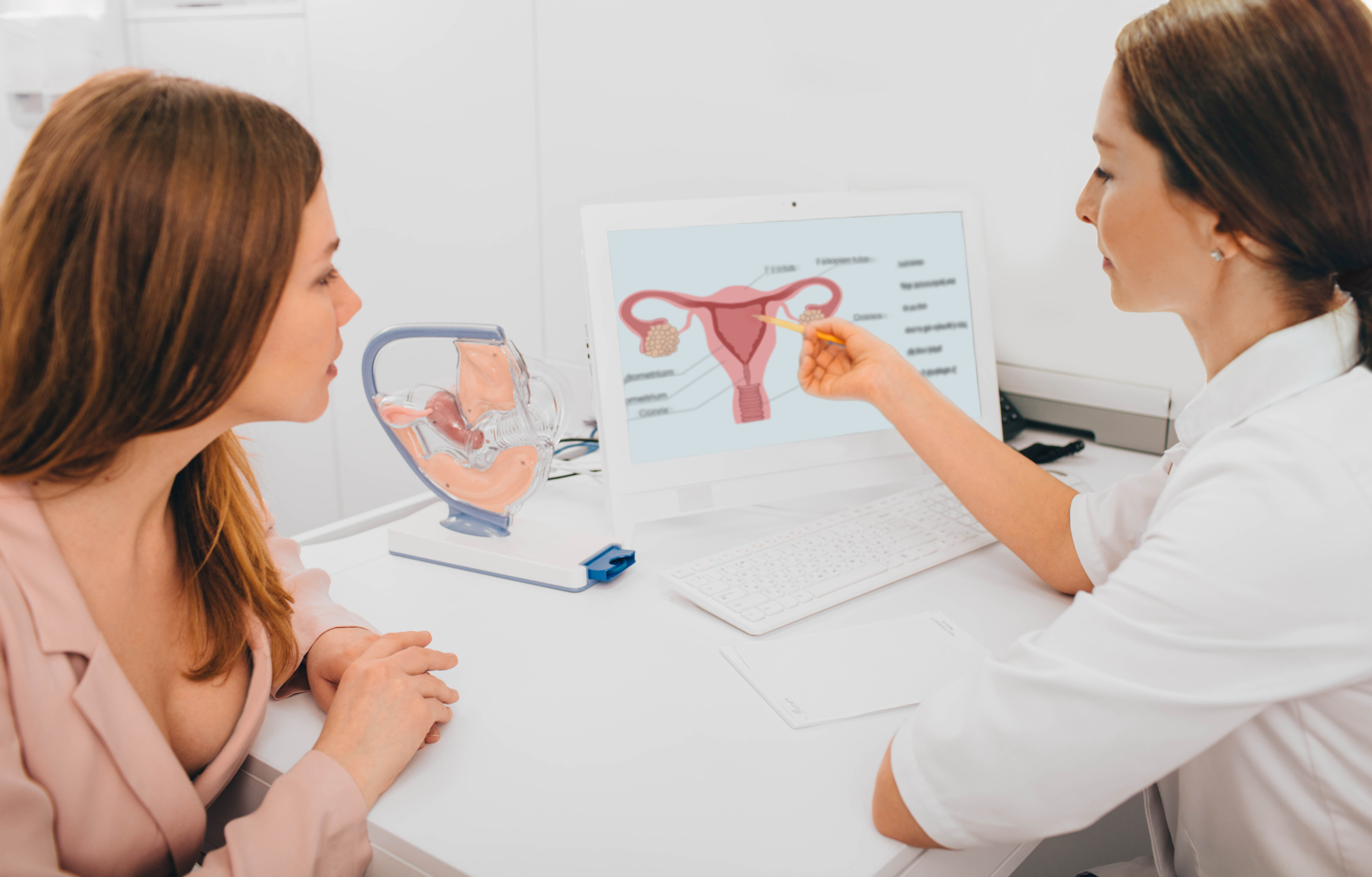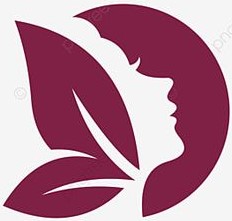

PCOS is a condition that affects a woman’s hormone levels. Women with PCOS produce higher-than-normal amounts of male hormones. PCOS is a problem with hormones that affects women during their childbearing years (ages 15 to 44). Between 2.2 and 26.7 percent of women in this age group have PCOS. PCOS affects a woman’s ovaries, the reproductive organs that produce estrogen and progesterone — hormones that regulate the menstrual cycle. PCOS is a “syndrome,” or group of symptoms that affects the ovaries and ovulation. In PCOS, many small, fluid-filled sacs grow inside the ovaries. The word “polycystic” means “many cysts.”
1)Irregular periods: A lack of ovulation prevents the uterine lining from shedding every month.
Some women with PCOS get fewer than eight periods a year.
2)Heavy bleeding: The uterine lining builds up for a longer period of time, so the
periods you do get can be heavier than normal.
3)Hair growth: More than 70 percent of women with this condition grow hair on their
face and body — including on their back, belly, and chest. Excess hair growth is
called hirsutism.
4)Acne: Male hormones can make the skin oilier than usual and cause breakouts on
areas like the face, chest, and upper back.
5)Weight gain: Up to 80 percent of women with PCOS are overweight or obese
6)Headaches: Hormone changes can trigger headaches in some women.

Doctors don’t know exactly what causes PCOS. Genes, insulin resistance, and inflammation have all been linked to excess androgen production. Studies show that PCOS runs in families.It’s likely that many genes not just one contribute to the condition.



1)Treatment for PCOS usually starts with lifestyle changes like weight loss, diet,
and exercise.
2)Losing just 5 to 10 percent of your body weight can help regulate your menstrual
cycle and improve PCOS symptoms.
3)A few studies have found that 30 minutes of moderate-intensity exercise at
least three days a week can help women with PCOS lose weight.
4)Exercise is even more beneficial when combined with a healthy diet. Diet plus
exercise helps you lose more weight than either intervention alone.
5)Medicines are an option if lifestyle changes don’t work. Birth control pills and
metformin can both restore more normal menstrual cycles and relieve PCOS
symptoms.
Preventions:
1)Fibre Diet: Maintain a rich fibre diet if you want to naturally prevent PCOS.
Fibre foods help you to stay active.
2)Fruits Help:Fruits is another home remedy to naturally prevent the polycystic ovary
syndrome. Fruits consumption will also help in preventing obesity.
3)Exercise: If you are having any symptom of PCOS like obesity or irregular periods,
you can control them with the help of exercise.
4)Yoga: Suryanamaskar and other yoga postures help to control stress which in turn
helps to prevent a woman from developing PCOS.
5)Stress:The silent killer is the reason why women and men suffer from a lot of health
problems. If stress is a major part of your life, learn to control it to prevent PCOD.

 She
Care
She
Care